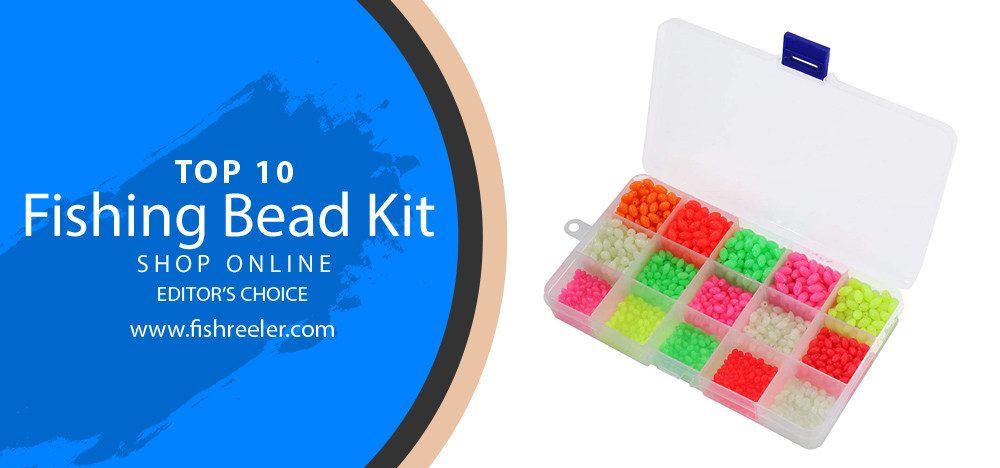
Beaded Brilliance: Elevate Your Fishing Rigs Today 🎣
Are you an avid angler looking to up your fishing game? Look no further! We present to you the ultimate game changer in fishing – Fishing Beads! These little wonders have been taking the fishing world by storm, and for good reason. Here’s why you should definitely add fishing beads to your tackle box:
✅ Mimicry Magic: Fishing beads are designed to mimic fish eggs, a primary food source for many predatory fish. This means your bait will be irresistible to those big catches you’ve been dreaming of!
✅ Colorful Attraction: The underwater world is a different ball game when it comes to light and color. Fishing beads come in a variety of colors, helping you to choose the perfect one that stands out in any water condition, attracting more fish to your hook.
✅ Versatility: Whether you are fishing in rivers, lakes, or saltwater, fishing beads can be incorporated into your rig. They can be used alone or combined with other lures, making them a versatile addition to your fishing arsenal.
✅ Easy to Use: Rigging fishing beads is a breeze! Even if you are a beginner, you will find it easy to add fishing beads to your setup and start reaping the benefits. 🐟🏆✨
Why Fishing Beads Are a Must-Have in Your Tackle Box 🌟
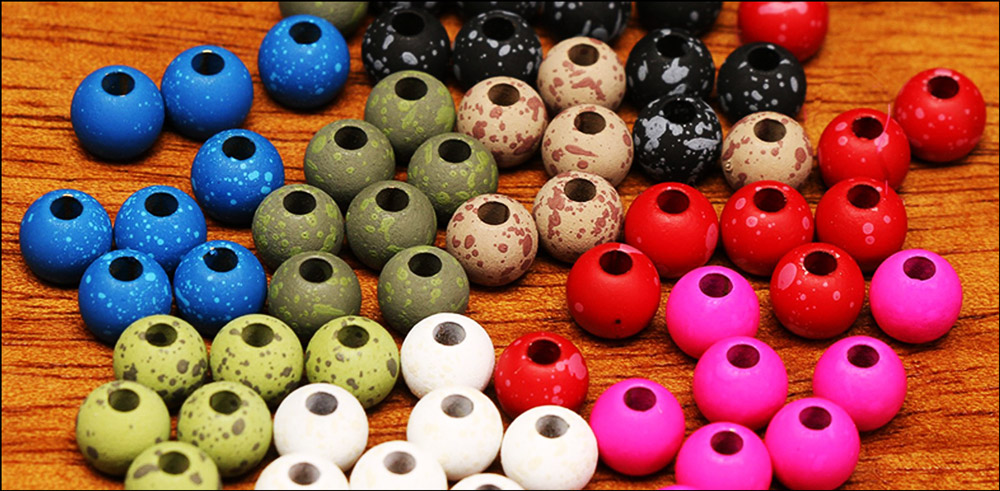
Fishing is an art, a science, and a sport that has captured the hearts of many. From the thrill of the catch to the beauty of nature, every aspect of fishing is truly enchanting. But let’s get down to business – every angler knows the importance of having the right gear. From the rod and reel to the lures and line, every component plays a crucial role in your fishing success. However, there is one small, yet incredibly significant piece of gear that often goes overlooked – fishing beads.
Fishing beads? Yes, you read that right! These small, colorful beads are a powerhouse when it comes to fishing. Often underestimated, fishing beads can be the secret weapon that gives you an edge over other anglers. They play a crucial role in attracting fish, adding weight to your setup, and protecting your gear.
In this article, we will delve deep into the world of fishing beads, shedding light on their importance, how they work, and how you can use them to maximize your fishing success. From the science behind fishing beads to advanced tips and techniques, this article will equip you with everything you need to know about this game-changing tool. So grab a cup of coffee, sit back, and get ready to uncover the secrets of fishing beads. Your fishing game is about to get a whole lot better! 💪🎣✨
How Fishing Beads Mimic Fish Eggs to Attract Prey 🐟
The role of fishing beads in mimicking fish eggs is a fascinating aspect of fishing science. Fish eggs are a primary food source for many predatory fish species. Salmon, trout, steelhead, and other fish species are known to consume eggs of their own kind and other species as well. This is where fishing beads come into play. These beads are designed to closely resemble the size, shape, and color of natural fish eggs, making them an irresistible target for predatory fish.
When a predatory fish sees the beads, it mistakes them for real eggs and strikes, giving you the perfect opportunity to hook the fish. This mimicry makes fishing beads an incredibly effective tool for targeting fish species that are known to consume eggs.
Diving Deeper: The Underwater World of Color and Light 🌈🌊
The underwater environment is vastly different from the surface world, especially when it comes to light and color. Water absorbs light, and the absorption rate varies for different colors of the spectrum. For example, red light is absorbed quickly, while blue light penetrates deeper into the water. This means that a red object will appear dull or even black at deeper depths, while a blue object will retain its color longer.
This phenomenon has important implications for the selection of fishing bead colors. Bright and fluorescent colors like orange, pink, and chartreuse are highly visible in low light conditions and are often very effective at attracting fish. However, in clear water and bright sunlight, more natural colors like peach, apricot, or pale pink may be more effective as they closely resemble the color of natural fish eggs in such conditions.
Additionally, certain fish species are known to have preferences for specific colors. For example, steelhead are often attracted to brighter colors like orange and pink, while brown trout may prefer more natural shades.
The key takeaway here is to have a variety of bead colors in your tackle box and to experiment with different colors until you find what works best for the specific conditions and fish species you are targeting.
🔶 Remember, experimentation is key, so don’t be afraid to try out different bead colors and see what works best for you! 🌟
The 10 Best Fishing Bead Kit – Editor’s Choice
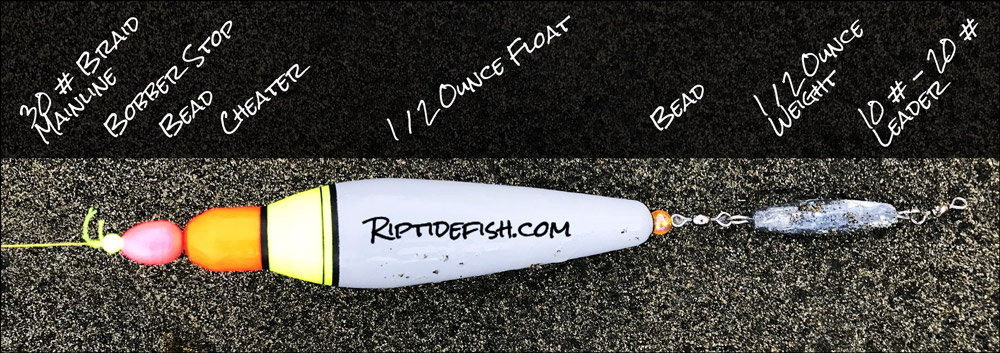
If you are looking for accurate information about fishing bead kits, you can find them right here. To offer you a comparison of the best products, I have created a complete review for you. Beads are an excellent bait for fish, they are bright and can even glow. This article is about fishing tackle beads, their meaning, and their features. Keep reading so as not to miss the chance to find out about such a fishing tackle.
Here are 10 of the best and most popular fishing bead kits for you. Nowadays you will find various fishing kits thanks to many manufacturers. But finding the best product is not always so simple. But thanks to my buying and review tips, you can make a decision with more awareness and choose the perfect product for your needs.
1# Dr.Fish Fishing Bead Bait Eggs Kits
Every fisherman should have such a set! You can attract fish much more efficiently and return home with an excellent catch. This set has a variety of colors. You will get 10 different colors, and some of them have a glow. Bright colors will attract fish quickly. The beads are made of plastic, they can be reused. All beads are sorted by color for your convenience.
2# Catch All Tackle Round 6mm Bead Kit
Just look at these fishing beads! They are so bright that no fish can pass by. All beads are in a plastic box but each color is separate. The set includes 6 different colors such as orange, white, red, yellow, green, and pink. These are the most popular colors that are most often noticed by fish. Beads have a size of 6 mm.
3# QualyQualy Fishing Beads – Amazon’s Choice
This set is recognized as one of the best according to customers. It offers you a variety of colors and ease of storage. The set has 10 colors of beads. Green and yellow colors have a glow. This is especially useful for night fishing, as well as for deep-sea fishing. Installation of such beads doesn’t require much effort and you can do it on your bait, fishing line, hook. You can use this fishing kit in various places. It works efficiently everywhere!
4# Hilitchi 9 Sizes All Luminous Fishing Beads
You can solve any of your fishing tasks with this kit. To begin with, I want to note that you will get 3 colors such as red, yellow, and green. And their main advantage is that they glow. It is ideal for night use. However, don’t forget that they are able to glow due to the absorption of energy from light. The set includes 1050 pieces, but that’s not all. Beads of various sizes are available to you. Here you will find both small 3.5 mm and large 10 mm. These are durable products because they are made of plastic. Use beads for any kind of fishing and enjoy your catch!
5# Round 8mm Bead Kit
I want to present to you a compact set that will help to attract the attention of fish. Here are 6 bright colors. You will get orange, green, yellow, white, red, and dark red beads. The box has a separation due to this the colors don’t mix. Your beads will not be lost and will not break thanks to a strong plastic box. Each bead comes in a size of 8 mm. Increase your chances of a successful catch!
6# DAOUD Fishing Beads
For an affordable price, you get a set of 1000 pieces of colorful beads. All colors are sorted and not confused with each other. Two colors glow, making them ideal for use at great depths or in the dark. They are stored in a convenient box that does not take up much space and is tightly closed. They can be used during sea fishing. They are made of hard plastic and have a size of 5 mm.
7# ICE SEA Luminous Fishing Beads
Attract fish in minutes with special beads. This set includes only luminous round green beads! However, the manufacturer offers you various sizes: 1.18; 1.57; 1.97; 2.36; 2.76; 3.15; 3.94 and 4.72 inches. The advantage of luminous beads is that they work effectively at night and for deep-sea fishing. And in combination with green, this works several times more efficiently.
8# FREE FISHER Fishing Beads
You will always have a choice! This set has 1000 pieces of beads that differ in color. Each color comes in an amount of 100 pieces. Beads can be used more than once, so this set will be used by you for many years. You can use white beads for fishing at great depths or at night. It is accessible due to the fact that they glow.
9# Fishcm Colourful Luminous Glow Fishing Beads
These beads are incredibly lightweight and convenient to use. They are round in shape and have a large enough hole in the center for your convenience. Plastic ensures the durability of the product so you can use the beads many times. In the box, you will find 4 and 8 mm beads, as well as a variety of colors.
10# Colorful Luminous Glow Fishing Beads Eggs Kit
This set contains not only tough but also soft beads. You will receive 600 pieces that can glow. You will always have orders in fishing tackle thanks to a storage box with special dividers. All beads are round and 8 mm in size. A large hole allows you to push the line without obstacles. This is a great bait for any kind of fishing!
A Guide to the Different Types of Fishing Beads 🎨
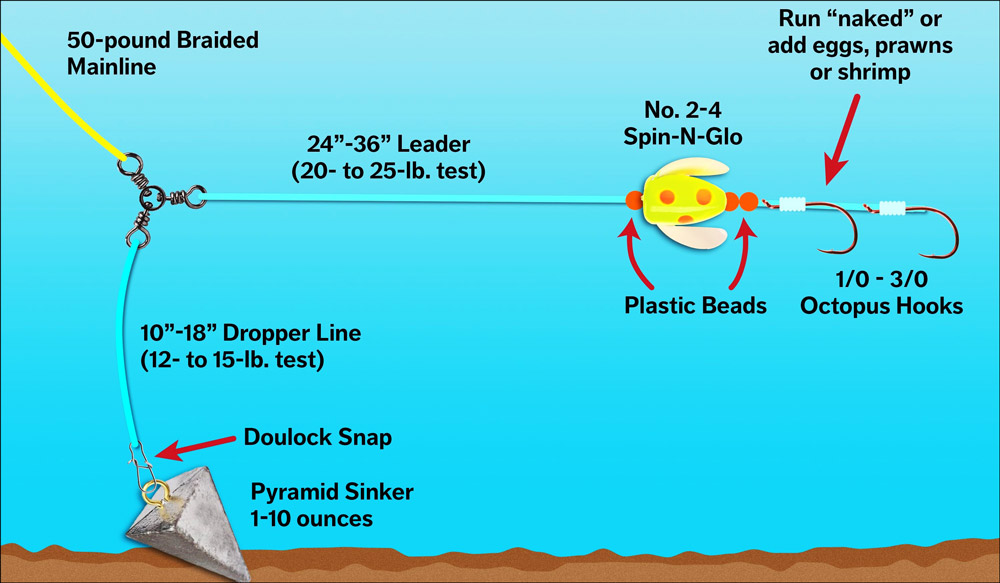
Fishing beads come in a variety of materials, each with its own set of advantages and disadvantages. Let’s take a closer look at the most common types of fishing beads available in the market:
Glass Beads
➕ Advantages: Glass beads are heavier than plastic beads, which can help your rig sink faster in the water. They also have a more natural and shiny appearance, which can be more attractive to fish.
➖ Disadvantages: Glass beads are more fragile and can break more easily compared to plastic beads. They may also be more expensive.
Plastic Beads
➕ Advantages: Plastic beads are durable, lightweight, and affordable. They come in a wide variety of colors and sizes, making it easy to find the perfect bead for your fishing needs.
➖ Disadvantages: Plastic beads are lighter than glass beads, so they may not sink as quickly in the water. They may also have a less natural appearance compared to glass beads.
Glow-in-the-Dark Beads
➕ Advantages: These beads are excellent for fishing in low light conditions, such as early morning, late evening, or in murky waters. They can attract fish from a distance and can be especially effective for species that are attracted to light.
➖ Disadvantages: Glow-in-the-dark beads may not be as effective in bright sunlight or clear water conditions. They may also need to be ‘charged’ with a light source before use.
Painted Beads
➕ Advantages: Painted beads come in a wide variety of colors and patterns, making it easy to mimic the appearance of natural fish eggs. The paint can also add a layer of protection to the bead, making it more durable.
➖ Disadvantages: The paint on the beads may chip or wear off over time, especially with heavy use. Painted beads may also be more expensive than unpainted ones.
To Summarize
- Glass beads are heavier and have a natural appearance but are fragile and may be more expensive.
- Plastic beads are durable, lightweight, and affordable, but may not sink as quickly and may have a less natural appearance.
- Glow-in-the-dark beads are great for low light conditions but may not be as effective in bright sunlight or clear water.
- Painted beads come in a variety of colors and patterns but may chip over time and may be more expensive.
🔶 Ultimately, the best type of fishing bead for you will depend on your specific fishing needs, the water conditions, and the target fish species. It’s always a good idea to have a variety of beads in your tackle box so you can adapt to any situation. 🐟🎣
Choosing the Right Beads for Your Fishing Adventure 🎨
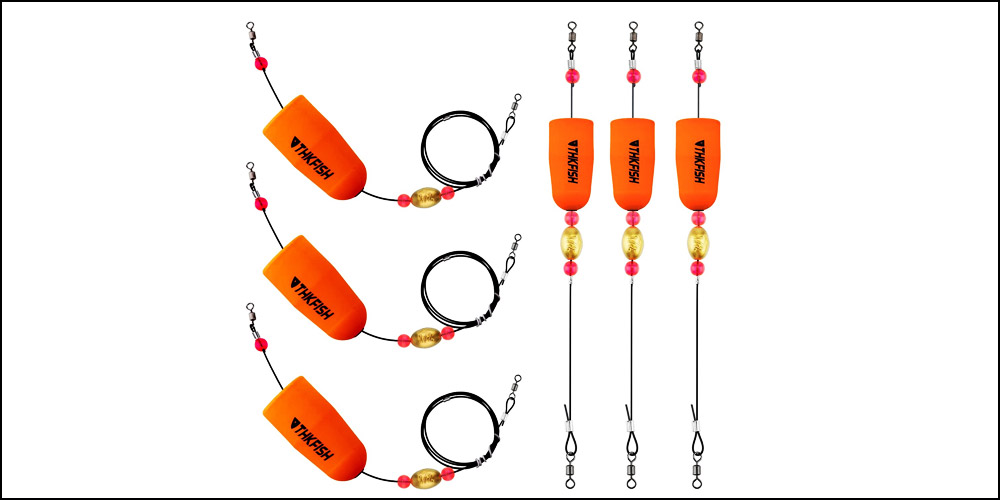
Choosing the right beads can make a world of difference in your fishing success. Here are some tips to help you select the right size, color, and type of bead for different fishing environments and target species:
Size Matters
The size of the bead you choose should match the size of the natural eggs that the fish are feeding on. For example, salmon eggs are typically larger than trout eggs, so you would use larger beads for salmon and smaller beads for trout.
The size of the bead can also affect the sink rate of your rig. Larger beads are heavier and will sink faster, while smaller beads are lighter and will sink slower.
Color Your World
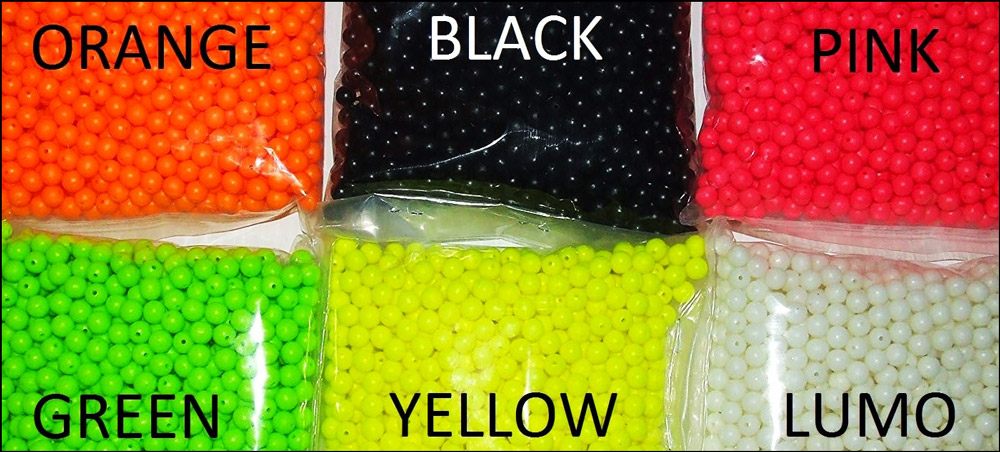
The color of the bead should match the color of the natural eggs in the water. For example, fresh salmon eggs are typically bright orange, while older eggs may be paler in color.
The water color and light conditions can also affect the visibility of the bead. Bright and fluorescent colors work well in murky waters or low light conditions, while natural colors work best in clear waters and bright sunlight.
Type Casting
The type of bead you choose will depend on your fishing environment and target species. Glass beads are heavier and have a more natural appearance, making them a good choice for clear waters and wary fish. Plastic beads are durable and affordable, making them a good choice for rough waters or areas with a lot of snags. Glow-in-the-dark beads are excellent for low light conditions or night fishing.
Quality Counts
The quality of the bead is crucial for success. High-quality beads have a more natural appearance, are more durable, and are less likely to chip or fade. Trusted brands like Trout Beads, Pautzke, and Mad River offer a wide variety of high-quality beads in different sizes, colors, and types.
To Summarize
- Choose the bead size that matches the natural eggs in the water and the sink rate you desire.
- Select the bead color based on the natural egg color, water color, and light conditions.
- Choose the bead type based on your fishing environment and target species.
- Invest in high-quality beads from trusted brands.
🔶 Remember, there is no one-size-fits-all answer when it comes to choosing the right beads. Experimentation is key, so don’t be afraid to try out different sizes, colors, and types until you find what works best for you. 🎣🌟
Mastering the Art: A Step-by-Step Guide to Rigging Fishing Beads 🎣
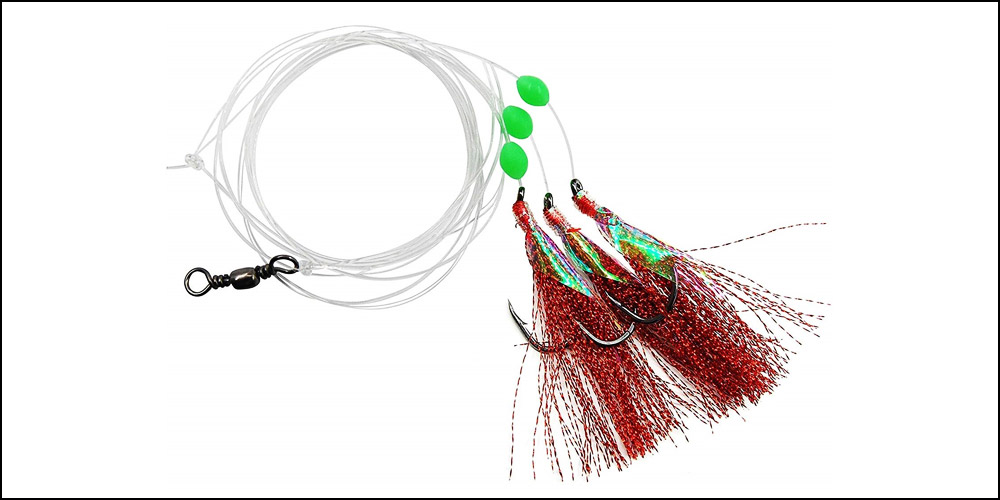
Fishing beads can be incredibly effective when rigged correctly. Here is a step-by-step guide on how to correctly rig fishing beads:
1️⃣ Select Your Gear: Choose a fishing line that matches the water conditions and target fish species. A fluorocarbon line is a good choice as it is nearly invisible underwater.
2️⃣ Select a hook size that matches the size of the bead and the target fish species. For example, a size 4 hook works well with a 10mm bead.
3️⃣ Thread the Line: Thread the line through the eye of the hook and tie a secure knot. Trim any excess line.
4️⃣ Position the Bead: Slide the bead onto the line above the hook. The bead should be positioned 1.5 to 2 inches above the hook. This positioning mimics a natural egg drifting in the water and increases the chances of hooking the fish in the mouth instead of the stomach.
5️⃣ Secure the Bead: Use a small piece of toothpick or a bead peg to secure the bead in place on the line. Trim any excess toothpick or peg.
6️⃣ Attach Weight: Attach split shot weights or a sliding weight to the line above the bead. The amount of weight will depend on the water conditions and the desired depth.
7️⃣ Test Your Rig: Before casting, test your rig in the water to make sure everything is positioned correctly and the bead is floating naturally.
Unlocking Success: Professional Tips to Maximize Success Using Fishing Beads 🌟
8️⃣ Vary Your Approach: Don’t be afraid to experiment with different bead colors and sizes during a fishing session. Fish can be finicky and may respond better to one color or size over another.
9️⃣ Match the Hatch: Try to match the color and size of the beads to the natural eggs in the water. Observing the eggs that the fish are spawning or regurgitating can give you clues about what color and size to use.
🔟 Observe and Adapt: Pay attention to the water conditions, light levels, and fish behavior and adjust your approach accordingly. For example, if you notice that the fish are feeding closer to the bottom, add more weight to your rig to get your bead down to the right depth.
Rigging fishing beads correctly is crucial for success. Follow the step-by-step guide above to rig your beads like a pro. Maximize your success by varying your approach, matching the hatch, and observing and adapting to the conditions.
🔶 Remember, practice makes perfect, so get out there and start fishing with beads! 🎣🌟
Advanced Techniques for Using Fishing Beads 🚀
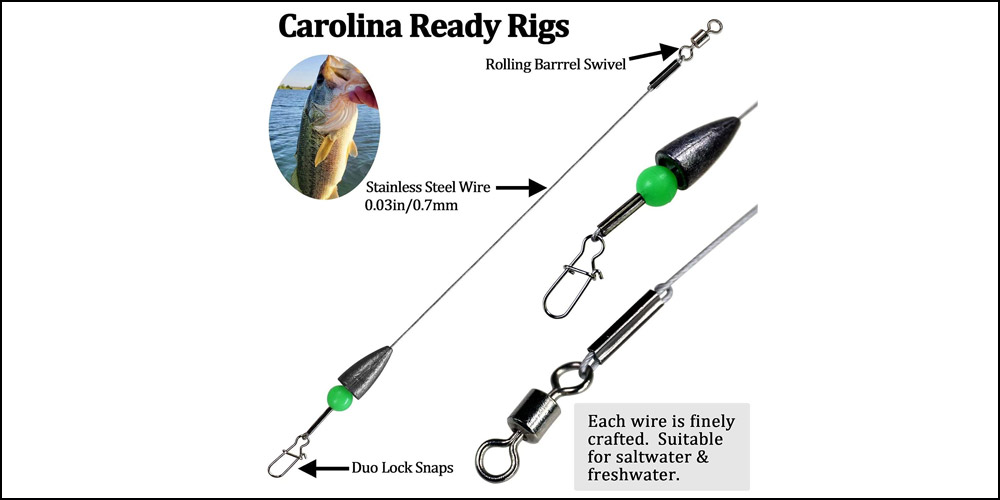
Once you have mastered the basics of fishing with beads, it’s time to level up your game with these advanced techniques:
Combining Beads with Other Lures
Combining beads with other lures can create a more attractive presentation and increase your chances of success. For example, adding a bead above a spinner or spoon can add color and mimic a natural egg, making it more appealing to predatory fish.
Using Multiple Beads on a Single Rig
Using multiple beads on a single rig can mimic a cluster of eggs and attract more fish. To rig multiple beads, simply thread two or more beads onto the line and secure them in place with toothpicks or bead pegs. Adjust the spacing between the beads to create a more natural appearance.
Adjusting Bead Size and Color
Varying the bead size and color throughout the day can increase your chances of success. Fish may be more responsive to different colors and sizes at different times of the day or in different light conditions.
Strategies for Fishing Beads in Different Water Types 🌊
🟣 Rivers: In rivers, the current will carry your bead downstream, mimicking a natural drifting egg. Use a sliding weight or split shot weights to get your bead down to the desired depth. Adjust the weight based on the speed of the current and the depth of the water.
🟡 Lakes: In lakes, there is no current to carry your bead, so you will need to use a slow retrieve or a float to present your bead at the desired depth. Adjust the weight and the retrieve speed based on the water conditions and fish behavior.
🟢 Saltwater: In saltwater, the tactics for fishing with beads are similar to fishing in rivers and lakes. Adjust your approach based on the water conditions, tide, and target species. For example, you may need to use heavier weights in strong currents or deeper waters.
Level up your game by combining beads with other lures, using multiple beads on a single rig, and adjusting bead size and color throughout the day.
Adapt your strategies for fishing beads based on the water type (rivers, lakes, saltwater).
🔶 Remember, there is always room for improvement, so keep experimenting with different techniques and strategies until you find what works best for you. Tight lines and good luck! 🎣🌟
Conclusion: Unlocking the Potential of Fishing Beads 🗝️
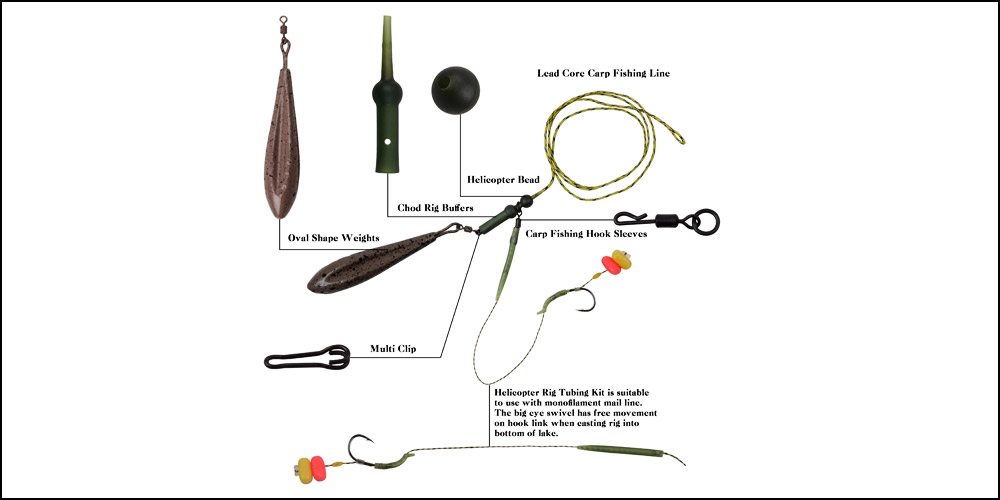
Fishing beads are a versatile and effective addition to any angler’s arsenal. They play a crucial role in mimicking fish eggs, attracting predatory fish, and helping you achieve success in various fishing environments. Whether you are a beginner or an experienced angler, understanding the science behind fishing beads, the different types available, and the techniques for choosing, rigging, and using them can greatly enhance your fishing experience.
Key Takeaways
- Fishing beads mimic natural fish eggs, making them highly attractive to predatory fish.
- Different colors and types of beads are more effective in different conditions.
- It is essential to choose the right size, color, and type of bead based on the fishing environment and target species.
- Correctly rigging and using fishing beads can significantly increase your chances of success.
- Experimenting with advanced techniques and strategies can help you level up your game.
Final Thoughts
We encourage you to experiment with fishing beads and find the techniques and strategies that work best for you. Remember, practice makes perfect, and the more you experiment, the better you will become. So get out there, start fishing with beads, and share your experiences with the fishing community. Your insights could be invaluable to other anglers looking to improve their fishing game. 🎣🌟
❓ FAQ About Beads for Fishing Rigs
Tags: #fishing beads / #fly fishing beads / #glow beads fishing / #steelhead beads fishing / #fishing beads for steelhead / #bead fishing for salmon / #bead fishing for trout / #bead fishing steelhead

I live in Tenerife (Canary Islands) for the last 10+ years and share my daily fishing experiences on my website. Many years of personal experience as a fisherman and the vast experience of my friends allow me to write professionally on any fishing topics (from choosing a flashlight and equipment to deep-sea fishing).
All of my advice is based on practical real-world experience and will be useful to both novice anglers and professionals. Read more about the author.
Affiliate Disclosure: FishReeler.org sometimes gets paid for listings, through sponsors or affiliate programs like Amazon, Ebay, Cabelas, Bass Pro Shop, Shimano, Daiwa, Rapala, Renn, Okuma, KastKing, etс. Clicking a link helps keep FishReeler.org free, at no extra cost to you!
About the author: Each article is verified by the fishing expert Sergio Smirnoff. The articles are written by professional and amateur fishermen with 20+ years of fishing experience.
Note: The views and opinions expressed in this article are those of the authors and do not necessarily reflect the official policy or position of any agency. The articles are for informational purposes only, share your opinions in the comments and join the fishing discussions, let's share our fishing experiences together!

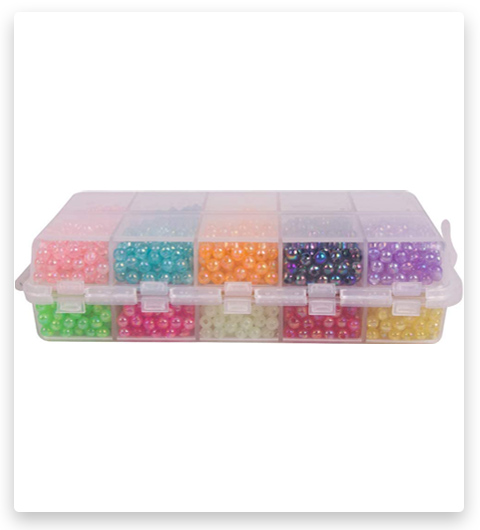
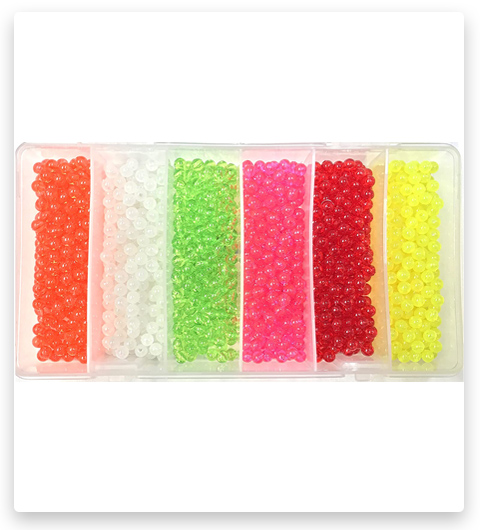
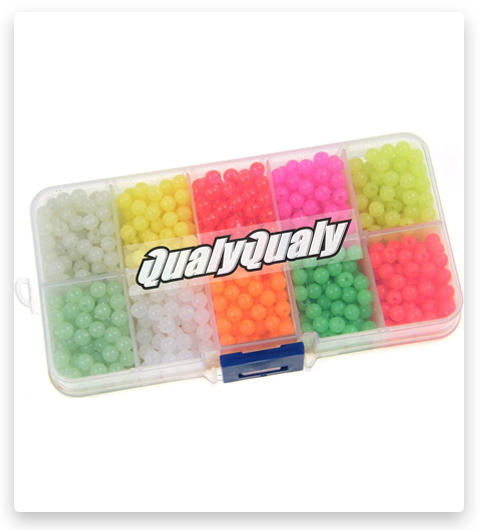
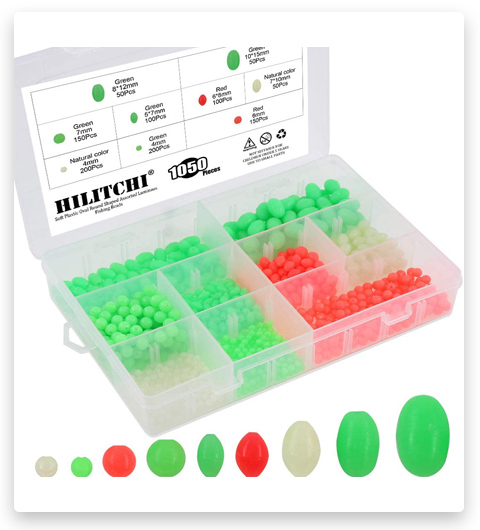
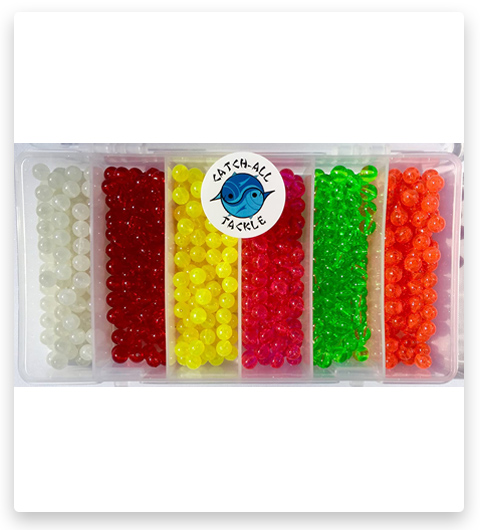
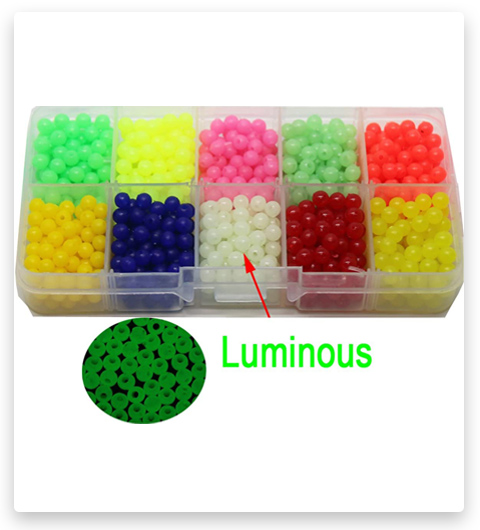
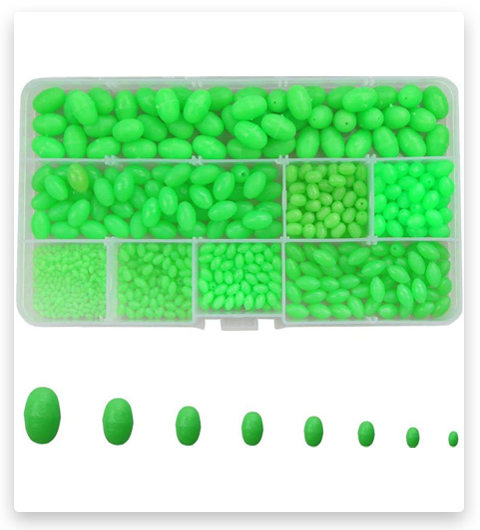
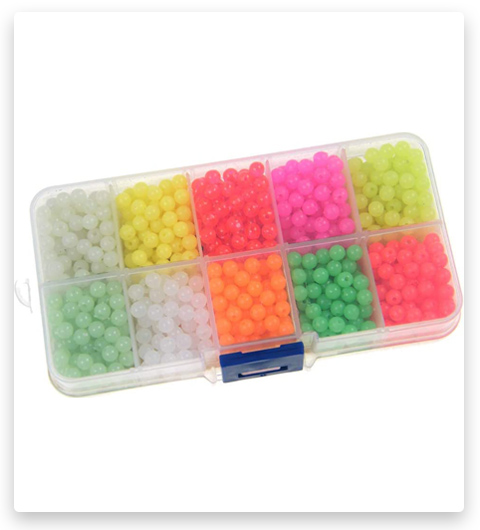
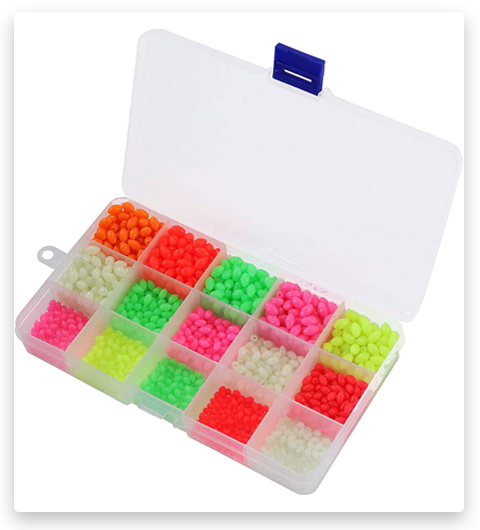
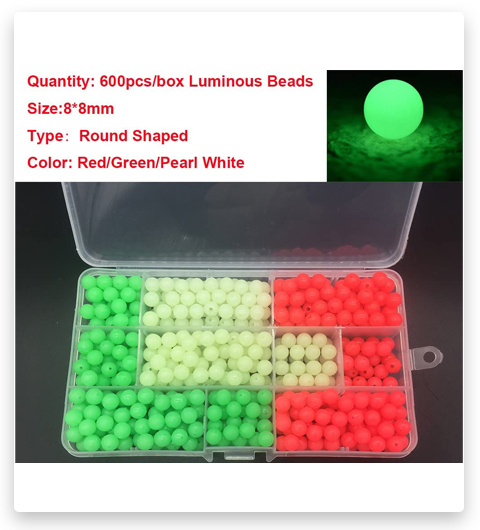
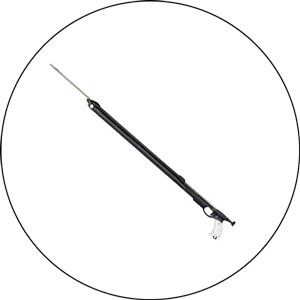
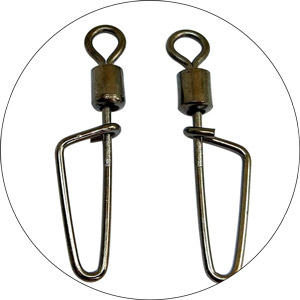
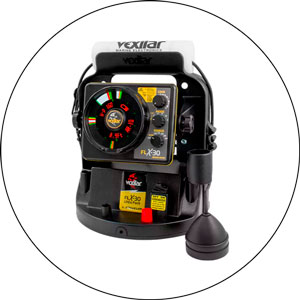
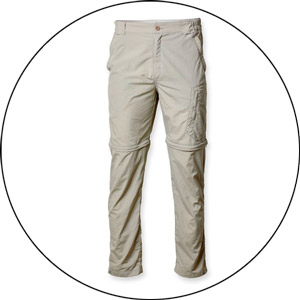
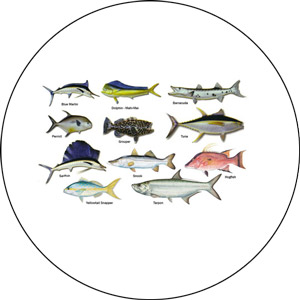
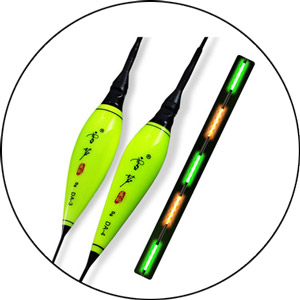
I have noticed that some anglers tend to get overly excited about fishing egg patterns. While I don’t share their enthusiasm, I do acknowledge that there is a good reason for it. It’s a simple fact that when fish are dropping eggs during spawning season, fishing an egg imitation will almost always outperform any other method available to the angler.
As a fly fisherman, I am familiar with the two main options available for egg imitations: the traditional yarn-based patterns like the Glo Bug, and the more recently adopted plastic bead egg imitations. However, I have noticed that some anglers consider beads to be a dirty word in the world of fly fishing. This is often due to the fact that they are made of plastic and not hand-tied like traditional flies.
In my opinion, this argument is completely baseless. Having tied my fair share of egg patterns, I can attest that it takes no more than 10 seconds to tie an egg imitation, even for an unskilled fly truer like myself. Furthermore, as someone who has fished both beads and egg patterns, I can confidently say that beads are far superior to their yarn-based counterparts for several reasons.
So to anyone who still thinks that beads aren’t “flies”, I encourage you to try them out for yourself. Not only are they effective, but they can also save you a lot of time and frustration at the tying bench.
I have found centrepin fishing to be a highly involved and rewarding way to fish. The casting technique itself is an art, and I enjoy the challenge of being able to run long drifts on long casts. With a fly rod, I often struggle to effectively fish pockets on the other side of fast-moving water due to the current pulling my drift out of the zone too quickly.
Although I used to nymph for steelhead on fly rods for years, once I tried a center pin setup, I never looked back. Nymphing with a fly rod now feels like a frustrating experience that makes me want to pull my hair out. I much prefer swinging my sprey rod or even using spoons for any type of tight-line presentation. However, when it comes to fishing with a bobber, centerpin is the way to go for me.
I’m a firm believer that beads are the way to go when it comes to fishing for spawning fish. Recently, a group of fellow guides and I were discussing the merits of beads versus egg flies over drinks at our favorite watering hole. That’s when one of the guys mentioned that his daughter, who’s quite artsy, had some beads made of jade stone that was roughly the same size and color as the beads we typically use for pegging.
Intrigued, we asked him to bring some the next day so we could try them out. And boy, were we blown away! Since the jade stones have their own weight, we didn’t have to use a split shot, which was a major plus in my book. We called them “jade eggs” and have been using them ever since.
If you’re interested in trying them out for yourself, check out your local craft stores or even online suppliers. The beads come in a variety of sizes and colors, making them perfect for dead drifting under an indicator in front of an emerger or other small fly. Trust me, since we’ve started using them, we’ve been catching more fish than ever before. Give them a shot – you won’t be disappointed!
I’ve been following the upcoming regulation change regarding bead fishing in our state. Currently, the law allows for beads to be used as an attractor when trailed by a fly within 2″ of the bead. However, using beads when trailed by a bare hook is illegal.
I’ve noticed that many fly fishermen have objections to both of these rigging methods because the fish tends to take the bead and not the fly or hook, resulting in the fish being hooked during the strike. Personally, I find this method of rigging to be effective, but I do see why some people have concerns about it.
I’m curious to hear what other anglers think about the use of beads in fishing and whether they believe the regulation should be changed. As for me, I’ll continue to follow the law and use beads as an attractor when trailing a fly within the legal distance.
In my experience, rigging a hook behind a bead is a very effective method of fishing. One of the main advantages is the cost: hooks and beads are cheaper than flies, so you can save money by using a bead and split shot instead of wasting flies all day.
Another advantage is that you can use stinger or circle hooks as the trailer on a bead setup, which makes it much harder for the fish to shake compared to a traditional egg fly hook.
Additionally, using a bead rig can result in the fish being hooked on the outside of the mouth, which is better for the fish and the fishery. This is because when indicator fishing, the fish often takes the fly long before the angler sets the hook, leading to gut-hooked fish. Fishing with a bead has been shown to gut-hook fish less frequently than fishing with a fly.
In my opinion, bead fishing often outperforms traditional fly fishing methods, but the question of whether it is true fly fishing is a separate debate. Ultimately, I believe it is up to each individual angler to decide what methods they are comfortable using and what regulations they feel are appropriate.
I personally believe that using a bead rig is a more effective and responsible way to fish. The hook is already in the fish’s mouth with the line, so when the hook is set, it slides into the lip or corner of the mouth. It is rare to accidentally hook a fish anywhere other than the mouth if the bead rig is used correctly.
This is similar to using tube flies where the hook is set back farther in the fly, resulting in the fish being hooked on the outside lip or corner of the mouth.
In terms of bead fishing, the fish still takes the bead in the same way it would take an egg fly or any other natural food item. The only difference is where the fish is hooked. Research has shown that hooking the fish on the outside of the mouth with a bead rig is better for the fishery as it results in fewer gut-hooked fish.
Therefore, I believe that using a bead rig is not only a more efficient way to fish but also a more responsible one. The debate on whether it is considered true fly fishing is subjective and up to personal interpretation.
It’s interesting to see how the bead technique has become popular in other states, especially since it seems to have been used in Alaska for a longer time. I’ve heard from many fishermen who have had great success with this method and appreciate how easy it is to remove the hook since it’s typically hooked on the outside of the fish’s mouth.
In my area, our fisheries are well-managed with certain waters having restrictions in some of the blue-ribbon areas or in areas that see a lot of pressure. Since some of our rivers are quite large, it’s common to both fly fish and dead drift wet flies on light-spinning rods.
Personally, I value the use of traditional flies that mimic natural food, and when I started fishing back in the 70s, we only used a handful of patterns. Over time, I began to incorporate man-made materials such as glo-bug yarns for egg flies, San Juan worms, foam ants, and so on. Now, the bead method has emerged, and while I understand the mechanics, I’m still on the fence about it. This is particularly true when considering the use of dropper flies, which are popular in the West. In such cases, a streamer might work for the attractant fly, but the fish takes the trailing nymph.
I’ve had some great success using a bead as an attractor and an egg fly as a trailing pattern. One of the benefits is that the fish tend to eat eggs very aggressively, so the setup is quite effective. Plus, unlike traditional egg fly patterns, the fish won’t swallow the hook.
When using an indicator, I like to have the egg fly trailing behind it, while the bead just sort of drags along. The fish will take the bead and hook easily in one gulp, and during the downstream hookset, the bead is pulled out of the mouth, and the following hook almost always finds purchase in the corner of the mouth. This downstream hookset is crucial for the system to work effectively.
I’ve found that using an 8mm bead works well for trout under 24 inches, which are about 4-6 cm in size. Additionally, pegging the bead allows you to use a high-quality hook, and the hook gap isn’t consumed by the fly pattern. I prefer to use a light wire scud or emerger hook, but any short-shank wide gap hook seems to work well enough.
Recently, I had the opportunity to go fishing in Alaska, and I found that beads were the popular choice for catching trout and dollies. I personally caught around 150 fish using beads, and I only had one or two accidental body hooks when I re-casted.
All the other fish were perfectly hooked in the mouth, and none of them swallowed the hook. I have done some research on this topic and found that using a trailing hook, like with a bead rig, is actually safer for the fish compared to hooks inside an egg pattern, which can sometimes cause the fish to swallow the hook. My personal experience while fishing in Alaska also confirmed this
In my experience, spacing between the bead and hook is crucial when bead fishing for salmon or trout. I usually go for a 1.5 to 2-inch space to ensure that the hook is in the corner of the fish’s mouth by the time I set it.
This not only increases the hook-up ratio but also minimizes the chance of the fish swallowing the hook, which is especially important if you plan on practicing catch and release. By finding the right balance between the bead and hook distance, you can improve your success rates while also protecting the fish.